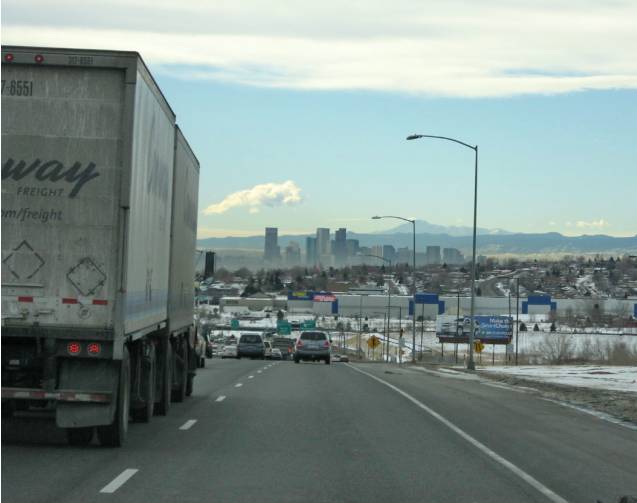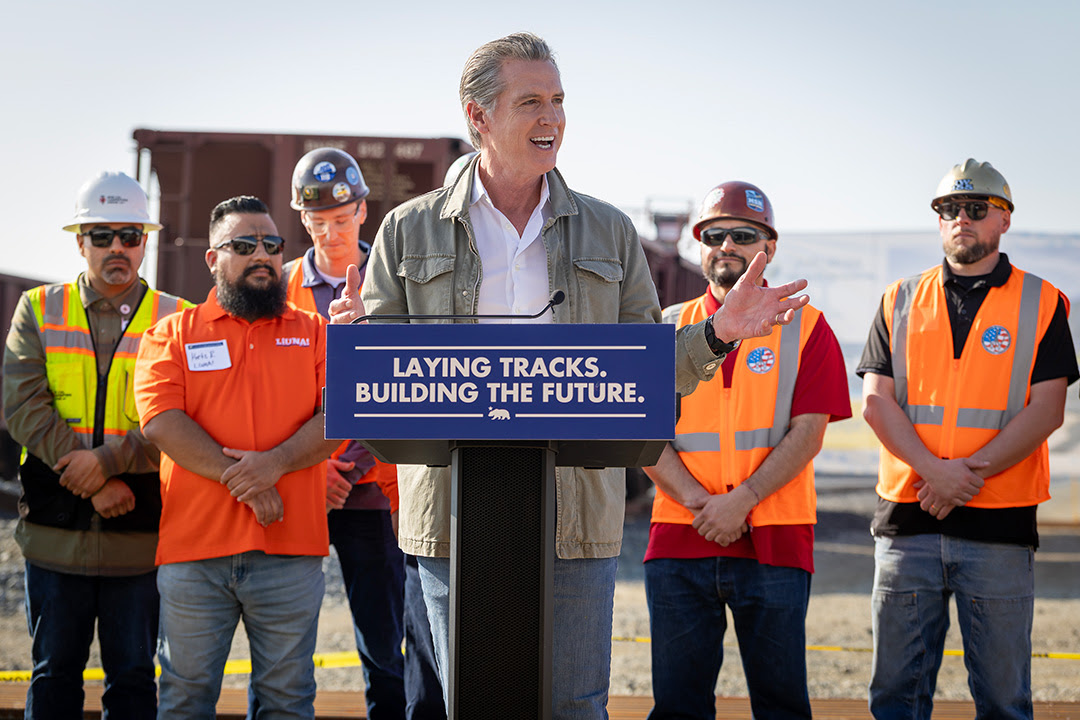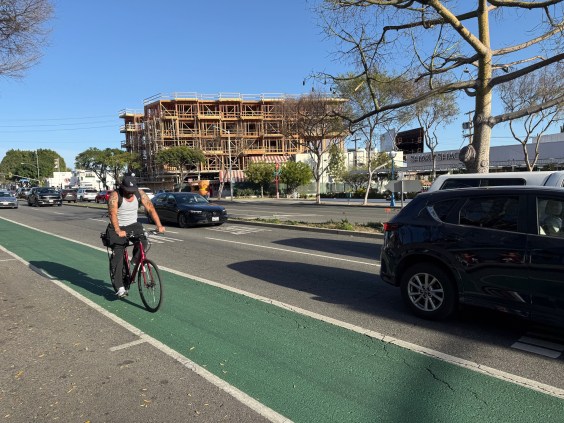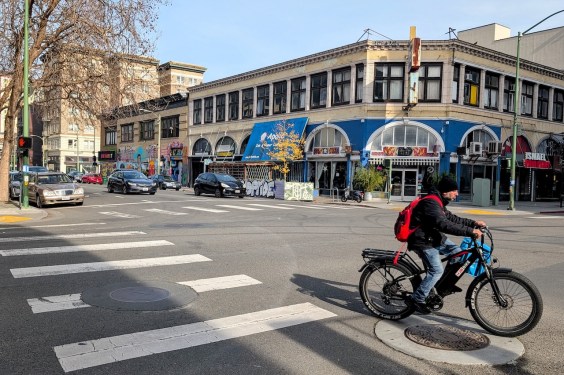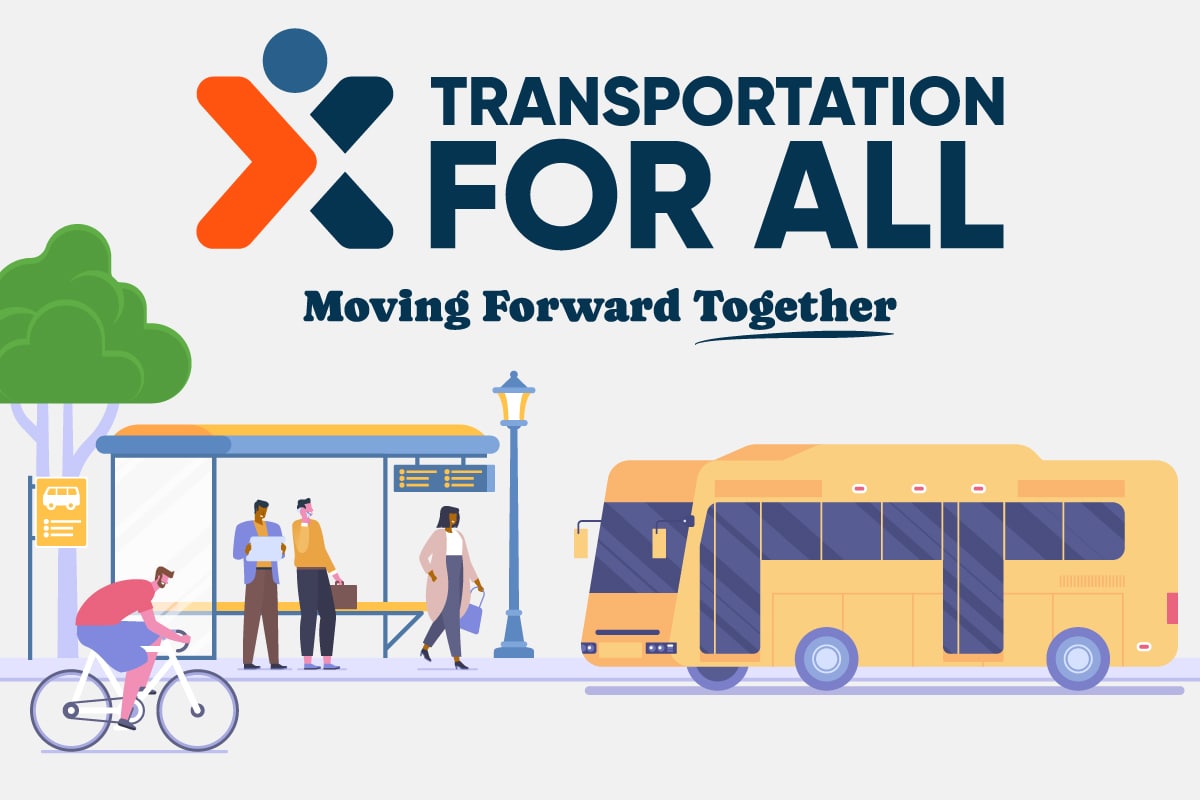Colorado will cancel two planned highway expansions, citing a new climate rule that advocates say should be a model for communities across America.
Officials at the Colorado Department of Transportation were set to announce on Thursday that they would halt plans to widen two freeways in the Denver region, including a particularly controversial project along Interstate 25 that would have deepened already-stark divides in some of the Mile High City's most underserved low-income communities. Those included the Sun Valley and Valverde neighborhoods, both of which are bordered by the 4.5-mile stretch of road that would have been expanded, and whose residents already report some of the highest rates of asthma in the state.
CDOT's decision to nix the project, along with the cancellation of a second highway expansion along Colorado Route 470 in the southeastern quadrant of the city, will free up more than $100 million in funding that the state says it will devote to enhancing the region's bus rapid transit network and making the I-25 corridor safer and easier to navigate, particularly for people outside cars.
"People are starting to understand that these highways are really city killers,” Matt Frommer, transportation analyst with the Southwest Energy Efficiency Project, told the Colorado Sun. “And we’re trying to build a more livable city. So I’m glad we’re leaving the capacity as-is.”
Reports vary as to why, exactly, state transportation leaders had such a drastic change of heart, with some Denver Council members claiming the state simply "[doesn't] have the money" to consider anything but "non-automobile approaches," asKevin Flynn said. Flynn correctly pointed out that the highway expansions would not have achieved CDOT's initially stated goal of reducing congestion and encouraging Denverites stuck in traffic jams to "consider whether there’s another way they can make that trip."
Sustainable transportation advocates, though, are largely crediting the win to a state law passed late last year, which required the DOT to significantly reduce multiple pollutants associated with automobile use in future projects — even after the historic amount of federal funding for highways guaranteed under the Bipartisan Infrastructure Law began flowing to states this year.
Like the United States on the whole, the transportation sector is Colorado's largest producer of greenhouse gas emissions, and it's also a leading source of ozone, which can cause or exacerbate respiratory illnesses like emphysema. The U.S. Public Interest Research Group — which planned to include the I-25 project in its annual Highway Boondoggles report before learning that the initiative was likely to be scrubbed — says that the Denver area has struggled through 40 ozone alert days alert days this summer alone, and points out that the decision to cancel the highway expansions "comes the same day as the state’s Air Quality Control Commission kicked off a review of Colorado’s plan to tackle the Denver region’s decade-long failure to reduce" the harmful toxin to levels that comply with Environmental Protection Agency standards, signaling that the law may have initiated a shift in the state's sustainability culture more broadly.
Some hope it could do the same across the country, especially if Colorado's rule becomes a national model.
“Colorado’s now going to put themselves at the forefront of what is clearly going to be … a contemporary, climate-conscious approach to transportation planning,” Adie Tomer, a senior fellow in the Brookings Institution’s Metropolitan Policy Program, told the Denver Post.
Apart from reducing pollution, advocates are hopeful that Colorado's decision to redirect its funds to transit, biking and walking, could help further erode the culture of car dependency in the region, and reverse traffic violence trends that have claimed 65 lives on Denver-area roads this year alone, setting the region on a course for its highest death toll in a decade. And while there isn't talk of tearing down any highways just yet, many are optimistic that at least the ones they already have will stop growing.
“For decades, we’ve spent too much money on highway infrastructure that locks people into a car-dependent lifestyle," said Danny Katz, executive director of the Colorado Public Interest Research Group. We have to give people transportation options so they don’t have to drive to complete every trip. By driving less, we can help people live more, reducing pollution and increasing the livability and safety of our streets. Removing I-25 Central widening from the state’s 10-year plan signals we’re now moving in a different direction. I applaud CDOT for merging onto this new path.”
Evon Lopez, community activist and resident of Valverde, cheered the decision, speaking of the "damage done to our community because of redlining policies and the pollution from highways."
“I know too many of my friends and family who suffer from asthma or other health ailments and are separated from other parts of Denver by our highways," he said. "So I applaud CDOT for listening to our concerns about I-25 expansion and instead of adding even more lanes to the highway, dedicating more money to increasing options like transit, improving bridges and connectivity between our neighborhoods, and investing in things like street lighting and sidewalks that can make it safer and more welcoming to get around. We need justice and equity. This decision is a good step and needs to be followed with additional steps to ensure our community is healthy and safe."
